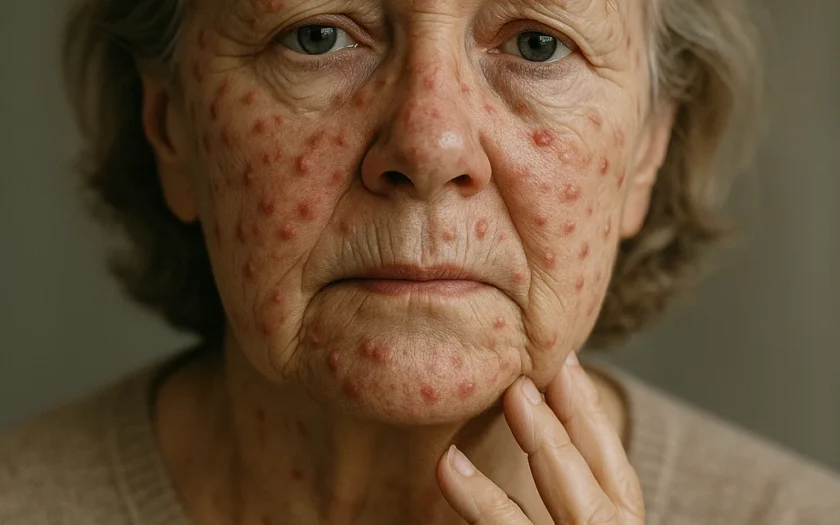Introduction
When most people think of acne, they picture teenagers struggling with hormonal changes. But acne is not limited to adolescence. In fact, millions of adults — including those over 50 — experience breakouts that can be just as frustrating and persistent. So why does acne happen later in life, and what can be done about it?
Common Causes of Acne in Adults and Seniors
-
Hormonal fluctuations
Even in later life, hormones can fluctuate due to menopause, medications, or underlying health conditions, triggering excess oil production. -
Chronic stress
Long-term stress can affect skin health by increasing inflammation and altering hormonal balance. -
Diet and gut health
Diets high in sugar or dairy can contribute to acne. Gut imbalances may also show up on the skin. -
Skin care products
Some creams or makeup may clog pores or irritate sensitive, aging skin. -
Medications
Certain drugs, such as corticosteroids or antidepressants, can contribute to acne-like symptoms.
Is It Really Acne?
Some conditions, like rosacea or folliculitis, are often confused with acne. A proper diagnosis from a dermatologist can help choose the right treatment.
Healthy Habits for Clearer Skin at Any Age
-
Use gentle, non-comedogenic skincare products
-
Maintain a balanced diet rich in whole foods
-
Manage stress with exercise or mindfulness
-
Get regular sleep and hydration
-
Talk to a healthcare provider about persistent skin issues
Conclusion
Acne doesn’t have an age limit — and neither should self-care. Understanding the root causes can help you take better control of your skin health, at any stage of life.

